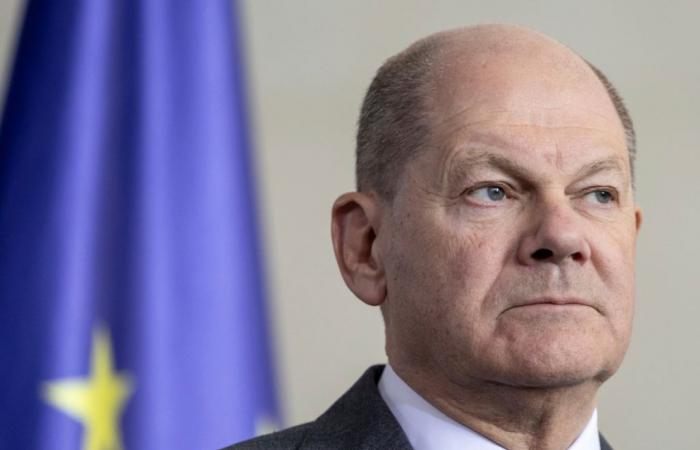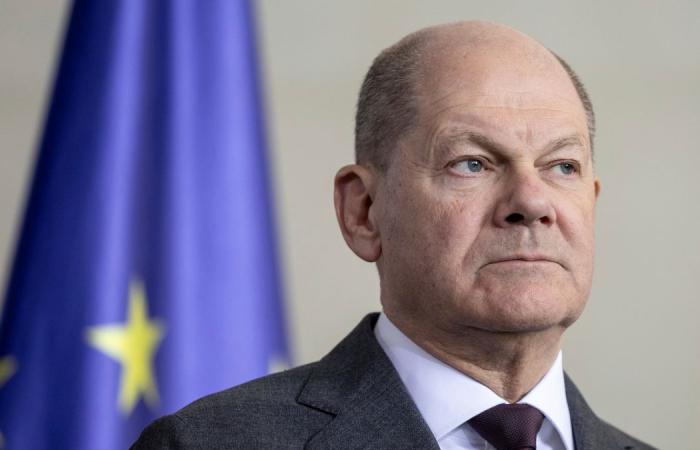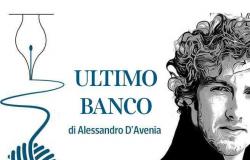Germany is not the sick man of Europe, but it is “tired” and now needs “a cup of strong coffee”. This is the reassurance given by the German Finance Minister, Christian Lindner, on the state of health of his country’s economy at the World Economic Forum in Davos, last January. Since then, the indicators that have been negative for months have improved somewhat, but concern remains high for patient Germany.
After the recession in 2023, with a 0.3% contraction in GDP, the federal government estimates growth of the same magnitude for the current year, which should increase to 1% in 2025. “We cannot be satisfied,” admitted the Minister of Economics and Climate Protection, Robert Habeck. The coffee is served, but with an eyedropper: it is the coffee maker that is not working or, better, the traffic light is short-circuited. Weak because divided, the red-green-yellow government between social democrats, ecologists and liberal democrats is struggling to give direction on the political and economic horizon to a Germany that, after 16 years of “Merkelian peace”, has awakened to a reality very different from its reassuring past. In addition to the fractures in the executive, exogenous factors weigh on the economy that are slowing down the recovery, intersecting with the endogenous characteristics of the German model. These are the intertwined crises of recent years: weakening of international trade, Covid-19, rising energy prices, Russia’s war against Ukraine. Like a battering ram, the rising gas prices and the conflict have hit the walls of Germany as a selbstbewusste Nation, “self-confident nation”. The certainties that Germans need to guide their actions have thus disappeared, such as markets to export Made in Germany and a friendly Russia from which to buy energy at easy prices. At the same time, China, Germany’s largest import market, is increasingly aggressive and relations between Berlin and Beijing are experiencing repeated tensions.
With the Russian aggression against Ukraine, the myth of the Wandel durch Handel, the “change through trade” as the German ability to orient autocratic regimes towards democracy through trade, collapsed. The Wunderwaffe then emerged, the “miracle weapon” of exports as a guarantee of success through the extraordinary surpluses of the trade balance. At the same time, despite the federal government’s calls for diversification so as not to repeat the mistake of dependence on Russia, German companies continue to pour capital into China, where their investments reached an all-time high of 11.9 billion in 2023.
Germany must therefore reinvent itself if it wants to recover in international competitiveness where it is slipping further and further behind, as stated by the president of the Federation of German Industry (Bdi), Siegfried Russwurm. However, Chancellor Olaf Scholz’s government is not immune to the strategic myopia that historically characterizes the ruling classes in Berlin. The dispute over the increase in public spending underway in the federal executive prevents the agreement on the 2025 budget and is emblematic of a Germany that slows down in order to venerate the fetish of the “debt brake”, the budget constraint foreseen by the its Constitution. The same dynamics are repeated in the EU. On the one hand, Germany wants to preserve its role as hegemon, albeit in difficulty, as demonstrated by the recent agreement on the appointments of the European Union’s leaders.
On the other hand, Germany itself categorically rejects the great leap forward that would be made with the common debt advocated by Italy, even if only for the financing of defense expenditure according to the European Commission’s proposal. Germany may not be sick, but the locomotive of Europe no longer appears. Indeed, without safe and innovative guidance, it risks derailing.







